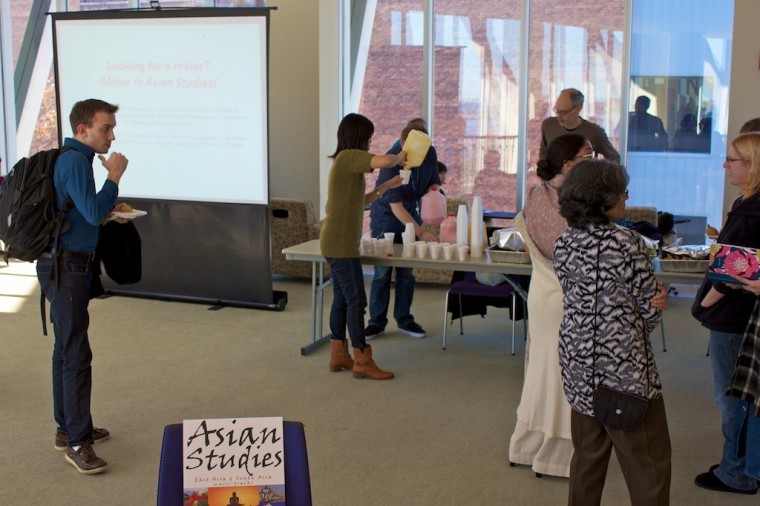On Thursday, October 25th, the UMass Boston Asian Studies Department had its annual open house. Professors and students met to discuss the Asian studies major and the new South Asian studies minor, which will officially launch in the Fall 2013 semester.
Catered snacks were available from a local South Asian restaurant, and the newest Asian studies faculty member, Sana Haroon, was present to meet new majors. Haroon is the first faculty hire for the new South Asian studies program. “It’s an exciting time,” Haroon said as she munched on a vegetable pakora.
South Asia is India, Afghanistan, Bangladesh, Bhutan, Afghanistan, Maldives, Nepal and Sri Lanka. Rajini Srikanth, UMass Boston’s Honors Program coordinator and a faculty member in the English and Asian Studies Departments, explains. “Asian Studies in the past has primarily focused on East and Southwest Asia. If you’re thinking about Asia in its most absolute and broadest sense, you cannot leave out South Asia because it’s a huge part of Asia.”
She goes on to explain that different non-Asian countries have a different idea of what Asia means, depending on which Asian countries they have colonized, fought wars in, or traded with. America has strong ties to East Asia because of our history of warfare in the area and because of our strong economic ties to that area. “Asia to people in the US is China, Japan, Korea, Vietnam.” However, this is not true in the rest of the world. “If you go to Britain and you talk about Asia,” she says, “the first thing they think is South Asia.”
Asian Studies majors and teachers are not necessarily Asian. Haroon, who teaches two courses this semester points out, “I think I have one or two students in either of those classes who might classify as South Asian.” The students present included Michael DeAngelis, an Italian-American linguist hoping to minor in South Asian Studies; the Professors included the retired former head of the Asian Studies program, Michael Lafargue, a Cajun from Alabama.
According to Lafargue, Asian Studies at the university has changed drastically since he took over. When he first became the department chair, “we only offered what was called a ‘program of study.’ The department has come a long way since that time. ”

